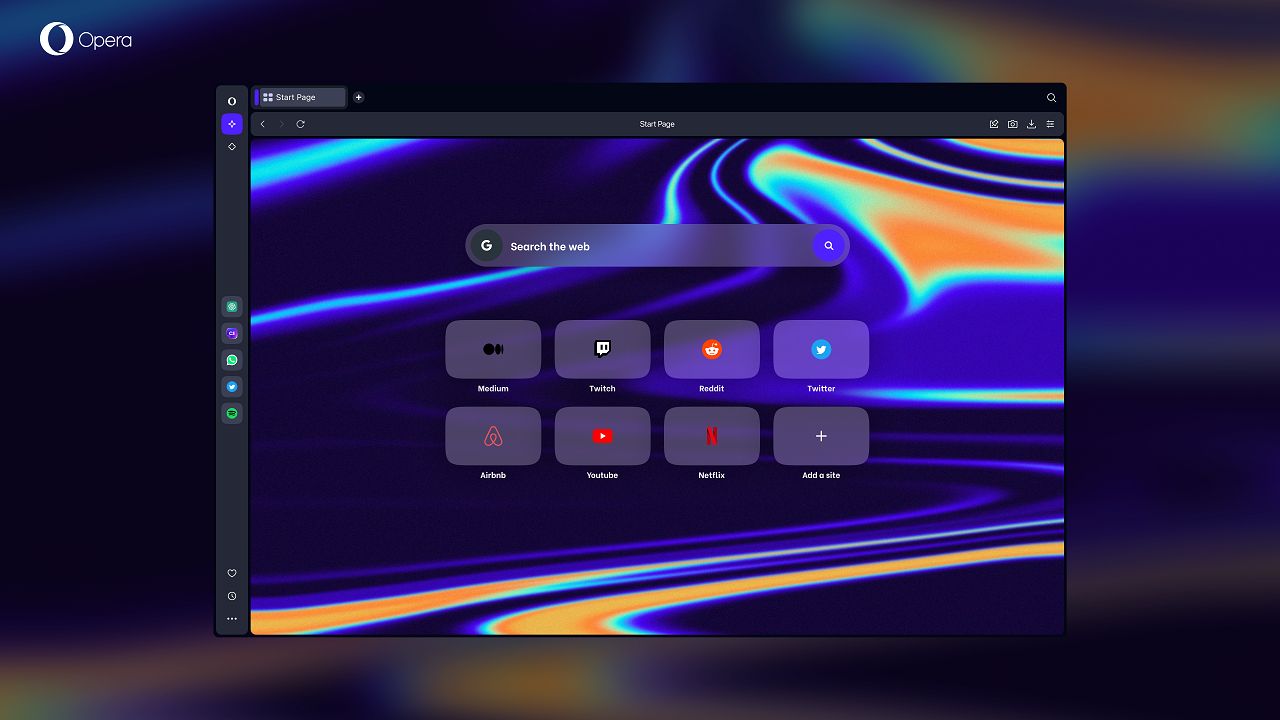Opera officially launches Opera Onethe early access version of a completely redesigned browser intended to replace the flagship Opera browser for Windows, MacOS and Linux later this year.
Opera One
Based on Modular DesignOpera One completely transforms the way you interact with the browser, making the browsing experience more fluid and intuitive for the user.
In addition, Opera One is also the first major browser based on the Chromium programming language, with a multithreaded compositor that brings the user interface to life like never before. Plus it also introduces Tab Islandswhich is a new, more intuitive way to interact and manage multiple tabs at the same time.
Introduction of the first implementation of Modular Design
With the launch of Opera One, the browser has been redesigned according to Modular Design, which will allow Opera to build a more powerful and feature-rich browser over time, making itself particularly marked by generative artificial intelligence.
The browser will also focus only on key functions, automatically adapting according to the context to offer the user an even more fluid and effortless browsing experience.
All of this results in a cleaner and neater look, with plenty of room for future AI-powered features and extensions, both in the browser sidebar and in the address bar. In Opera One, ChatGPT, ChatSonic and the new Prompts AI feature are turned on by default.
In addition to creating space for existing generative AI services, the all-new design lays the groundwork for AI services that Opera intends to introduce soon in the near future.
Opera One’s Multithreaded Composer
Opera One, implementing the new Multithreaded compositor to offer a faster and smoother UI level, brings to life a UI never seen before. In particular, when combined with the new Modular Design Principles, it allows the implementation of new features such as Tab Islands, i.e. a new function that offers a fluid and intuitive experience, specifically built to facilitate the use of the browser for users who interact with many tabs at the same time.
In fact, as pointed out by the researchers of theCarnegie Mellon University of Pittsburgh (in Pennsylvania) the current design of browser tabs makes it difficult to switch between activities smoothly, making users overwhelmed by the confusion that arises from having multiple open tabs.
Opera One’s new Tab Islands thankfully address and fix this.
“Tab Islands are a natural way to organize tabs into contextual groups without disrupting workflow. They make it easy to keep related tabs in groups that you can open and close as needed. This makes browsing with many tabs more efficient, allowing for a more enjoyable and smooth browsing experience,” he said Joanna Czajka, product director of Opera.
Tab Islands are created automatically. Open websites can be grouped into a set of tabs by pressing the CTRL/Command key and clicking on the ones you want to group, and you can also move them by dragging them from one group to another.
The AI functions in Opera
Opera updates in early 2023 brought the addition of generative AI features to the browser. Therefore, the desire to make Opera completely modular in the future, making the browser user interface more intuitive and functional, is well understood.
“Opera One is the first example of our intelligent, modular design within Opera. It marks the beginning of a chain of innovations, including Opera’s artificial intelligence engine, which will roll out in the coming months. The web just got smarter and faster thanks to generative AI. With Opera One, we are ready to embrace and lead this change,” he concluded Lapwing.















Leave a Reply
View Comments